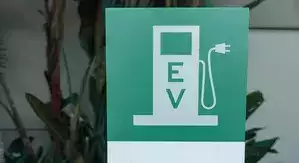
According to the report, EVs are expected to account for 6 to 8.7% of India's total electricity consumption by 2035, reflecting the growing adoption of EVs and their impact on the power grid.
"EVs in India to consume around 6 to 8.7% of the electricity by 2035" said the report.
The report also highlighted that globally, EVs are seeing increased adoption. In 2023, EVs made up 18% of all car sales worldwide, with China contributing to more than half of those sales. This rapid increase in the use of EVs is expected to have a significant impact on global electricity consumption as well.
"EV Cars Seeing Increased Adoption Worldwide, EVs accounted for 18% of all car sales in 2023 with China accounting for than half of those" the report added.
The report estimated that with the rising penetration of EVs, their share in global electricity consumption will rise from 0.5% in 2023 to between 8.1% and 9.8% by 2035.
This growth in EV usage highlights the need for countries, including India, to prepare their energy infrastructure for the increased demand. As more people adopt electric vehicles, the power sector will need to expand capacity to meet the new electricity needs efficiently.
The report also sheds light on another critical issue for India - the increasing demand for cooling devices, particularly air conditioners (ACs). With extreme temperatures becoming more frequent across the country, the demand for cooling solutions is expected to rise sharply.
"Extreme temperatures in India driving the need for more cooling devices" the report said.
According to the data, the penetration of household appliances, particularly ACs, is expected to see a sharp increase in India over the next decade.
The report highlights that the demand for ACs in India is projected to double by 2030, driven by the surge in extreme heat. As temperatures continue to rise, more households are likely to invest in cooling devices, adding to the overall electricity consumption in the country.
To learn more about the electric vehicle ecosystem and meet the key industry leaders, click here.
Disclaimer: The copyright of this article belongs to the original author. Reposting this article is solely for the purpose of information dissemination and does not constitute any investment advice. If there is any infringement, please contact us immediately. We will make corrections or deletions as necessary. Thank you.





